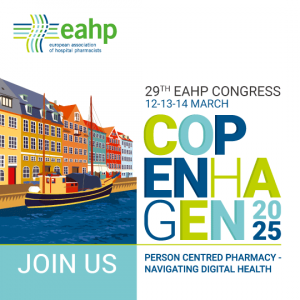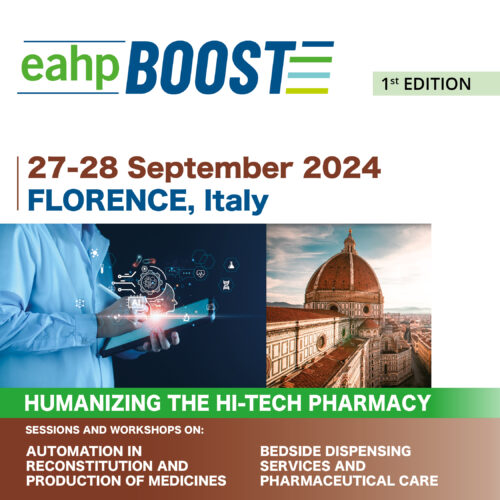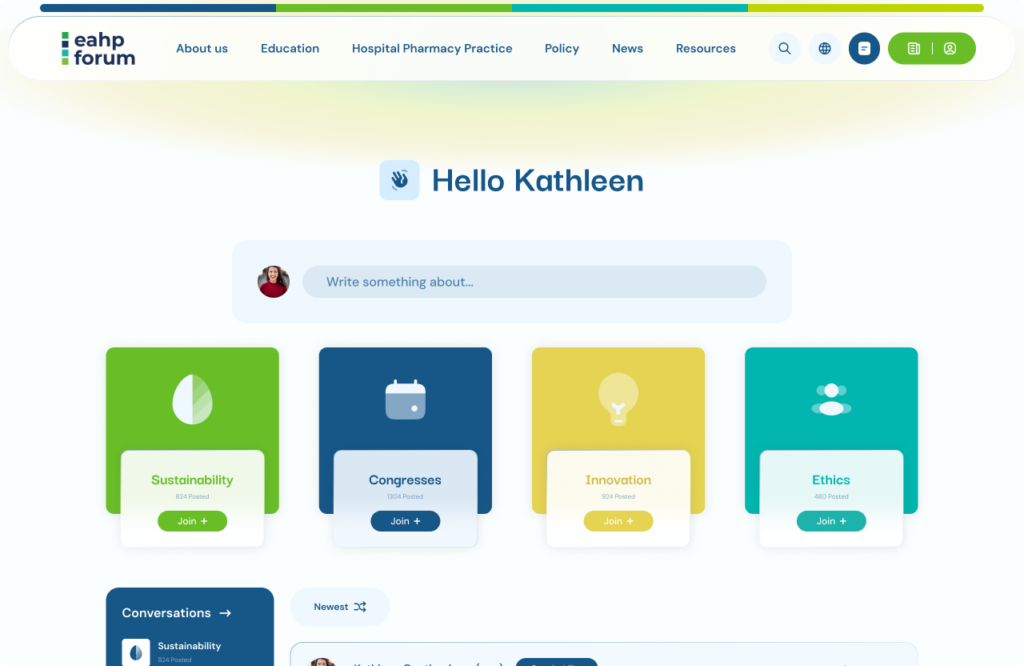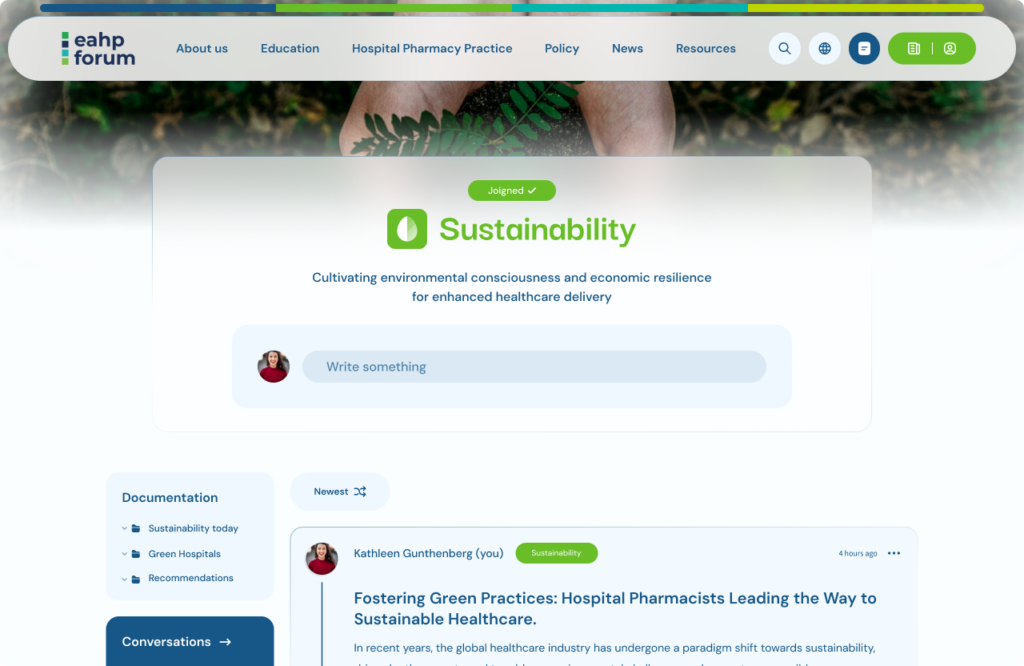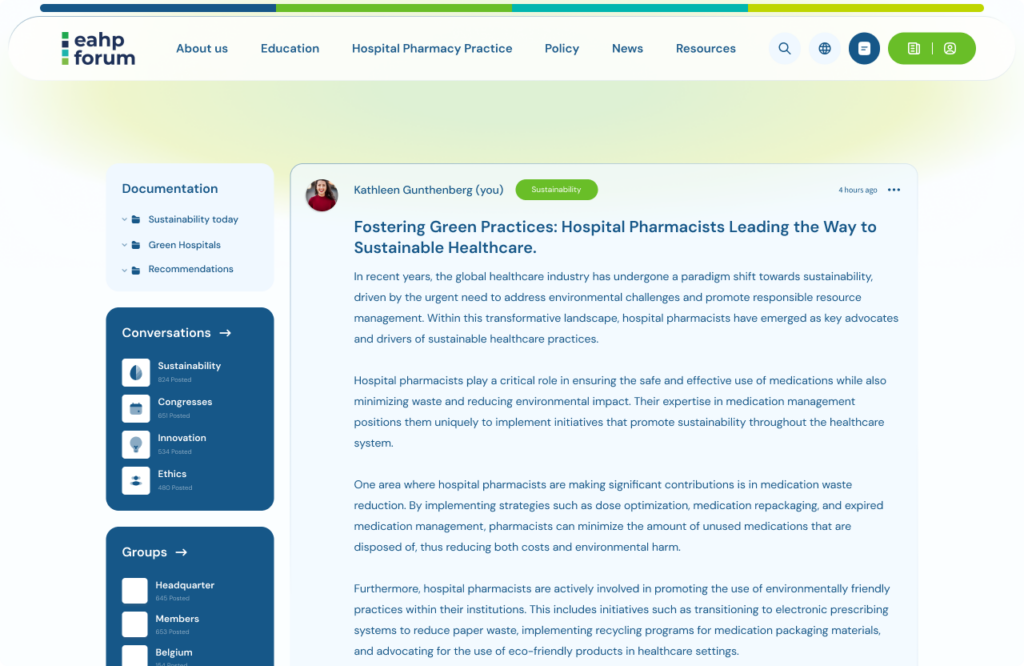Problems caused by medicines shortages are serious, threaten patient care in hospitals and require urgent action. Medicines are not simple items of commerce, they are an essential component of patient care and in the hospital sector they must be administered to the patient in a timely manner. This is particularly the case for patients taking medicines which have a significant clinical consequence when doses are missed, such as fibrinolytics, anesthetics, anti-psychotics, anti-epileptics, immunosuppressives and anti-cancer drugs. Shortages of such medicine place the ability to provide timely administration of a particular medicine under threat.
Managing medicines shortages and ensuring continuity of supply can also cause the diversion of significant amounts of the time and attention of a hospital pharmacist from other tasks important in the provision of high quality, safe and efficacious care. Furthermore, the medicines shortage problem can undermine efforts to reduce costs in health systems as often, in the case of shortage, a more costly alternative must be used – or worse, a less effective alternative.
EAHP’s position paper
In 2012, the EAHP adopted its first position paper on medicines shortages which outlined the responsibilities of the different supply chain actors. A revision in 2019 led to the adoption of EAHP’ latest position paper on medicines shortages which
- advises national governments to evaluate if their shortages measures and management systems are fit for purpose and to rectify shortcomings where and when needed;
- urges national governments and healthcare organisations to evoke appropriate staffing levels in order to lower the impact that medicines shortages currently have on the overall patient services provided by hospital pharmacists;
- calls on the European Commission to urgently commence an investigation of the medicines shortage problem looking at the causing factors and propose solutions that will help alleviate or solve shortages;
- appeals for improved information exchange between authorities and supply chain actors as well as best practice sharing and implementation support on shortage management strategies between relevant national regulatory bodies to support patient safety; and,
- urges the EMA and the HMA to consider the development of a comprehensive communication strategy on medicines shortages.
EAHP adopted a new position paper on Medicines Shortages during the 54th EAHP General Assembly in 2024. Please find the positon paper HERE.
EAHP Medicines Shortages Surveys
Due to the lack of information on medicines shortages, EAHP has started to collect evidence on medicines supply shortages in the hospital sector, its prevalence, nature and impacts for patient care. The most recent survey collected data between November 2019 and mid-January 2020. It was published on 7 April 2020.
Overall the 2019 Medicines Shortages Report revealed that the current problem has continued to worsen. In particular the percentage of hospital pharmacists reporting shortages to be an issue in terms of delivering the best care to patients has seen a significant increase with 95% of respondents, compared to 91.8% in 2018 stressing that medicines shortages are a problem faced in their hospital pharmacy.
Detailed information on EAHP’s three medicines shortages surveys is available via the following links:
List of indispensable medicines
The Working Group on unavailability of indispensable medicinal products of the French National Academy of Pharmacy and EAHP have joined forces to create different lists of indispensable medicines in relation to different treatment areas. In 2021, both organisations worked on a List of Indispensable Anti-Cancer Drugs.
Additional efforts to combat medicines shortages
In 2013, a common position paper was formed through the European Medicines Agency patient and healthcare professional stakeholder groups. The common position paper touches on possible causes of shortages and proposes measures to prevent and manage supply shortages of medicines in the current regulatory framework. A letter to the European Commission was prepared by European pharmacy associations (EAHP, EIPG and PGEU) to request action.
In early 2017, the medicines supply chain stakeholders (AESGP, EAHP, EAEPC, EFPIA, EIPG, GIRP, Medicines for Europe, PGEU) issued a joint statement on information and medicinal products shortages. The recommendations included in this document call for greater transparency and availability of medicines shortage data, early detection and assessment of potential shortages, consistency of reporting, increased access to the information available across all parts of the supply chain, improved data infrastructure, and collaborative governance processes.
In May 2019, EAHP together with 30 national and European associations of patients, consumers, healthcare professionals and public health advocates approached the European Commission with the request to start an investigation into the factors leading to medicines shortages. In September, the initiative gathered more than 40 organisations and reached out the to the Environment, Public Health and Food Safety (ENVI) committee of the European Parliament. In a letter addressed to the ENVI committee’s chair, its vice chairs and the group coordinators, the initiative highlighted their growing concern about medicines shortages and called upon the ENVI committee to act.
Medicines shortages, in particular during the COVID-19 pandemic, are not only a concern for hospital pharmacists but also for those working in the field of oncology. The European Society of Oncology Pharmacy (ESOP) is consequently collecting regular information on the situation. EAHP supports this data collection which can be accessed via ESOP’s website.
On 17 September 2020, the European Parliament adopted a Report on the “Shortage of medicines – how to address an emerging problem”. Together with the Association of European Cancer Leagues (ECL), the European Public Health Alliance (EPHA), France Assos Santé and Prescrire, EAHP has put together a list of actions (see HERE) that should be prioritised.





